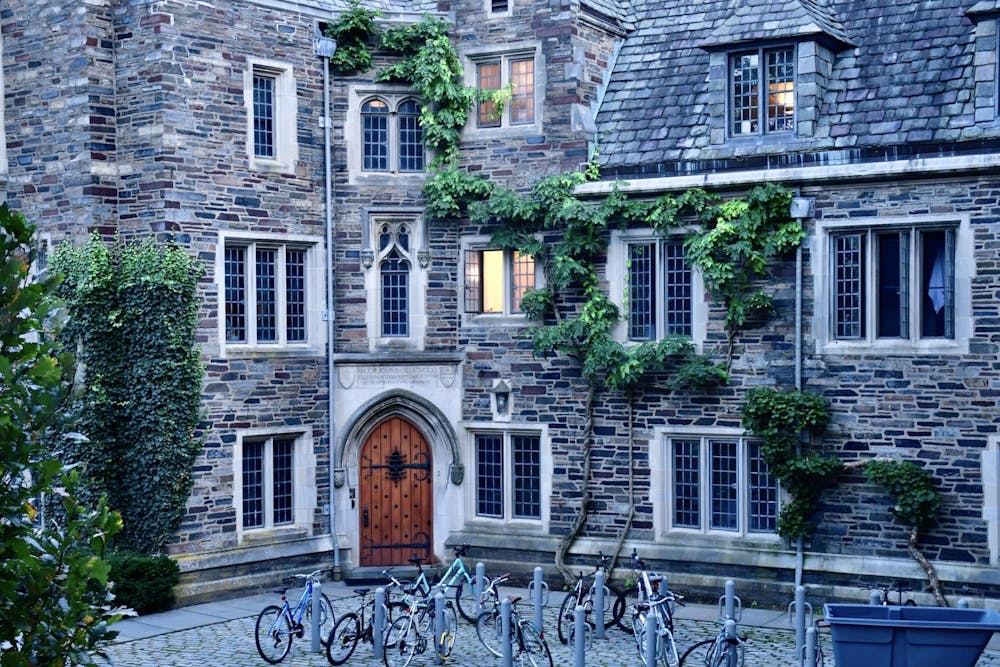The University has outlined a new plan for summer student housing. Yet, despite substantially lowered rates, students in financial need report that they may face difficulty meeting the costs.
In order to apply for summer housing this year, students must currently reside on campus for the spring semester, receive financial aid, and successfully complete the spring term. Graduating seniors are ineligible.
Furthermore, applicants must be financially independent students, international students unable to return home due to travel restrictions, students in severe financial need who cannot secure housing elsewhere, or students currently residing in graduate family housing.
“The University continues to have an important role to play in flattening the curve of infections, both for the sake of our students, faculty and staff, and for the surrounding region,” Deputy University Spokesperson Mike Hotchkiss explained in an email to The Daily Princetonian. “To do so, we must continue to limit the number of students on campus.”
“As a result, we have prioritized students who may not have external resources to find and secure off-campus housing,” he added.
Though Tommy Ren ’22, who is from Shanghai, is living on-campus for the remainder of the semester, he is not eligible for summer housing. Ren understands the University’s rationale.
“Restricting the shelter service to just students with financial aid I think is actually very understandable, if the school really has very limited housing that could be provided. I think we should definitely give the housing to people who need it the most,” Ren said.
Eligible students have until May 1 to apply for University summer housing, for the period of May 23 to August 22, at the discounted rate of $1,500.

Typically, University summer housing would cost $218 per week for eight weeks, which would total $2,834 for this summer’s 13-week period of emergency shelter.
Students on financial aid will also be eligible for emergency subsidized loans to cover off-campus housing.
Anna Macknick ’21 stayed on campus this spring because she is financially independent. Macknick told the ‘Prince’ that upon learning Harvard University will charge $200 for summer housing, she thought, “that’s incredible,“ and hoped “that we would have similarly cheap, if not free, housing.”
“I guess it is cheaper than the typical summer cost of housing,” she said. “But I still was really disappointed to see that it wasn’t being more subsidized or that there weren’t any sort of grant options [or] adversity funding for students in need.”

Saoirse Bodnar ’22, a financially independent student who lost University funding after her internship was canceled, shared Macknick’s view.
“I was hoping that since the students who [are] remaining on campus are the ones that face housing insecurity, and now with all our internships and other programs being canceled, we’re even more in danger of becoming homeless — I was hoping that Princeton would be able to meet our needs and come through, and provide us summer housing to accommodate for this crisis,” she said.
In light of the economic challenges inflicted by COVID-19, the University encouraged students to seek summer employment, or alternatively take out a $2,000 loan to cover the housing costs.
To that end, the University is working to consolidate on-campus employment options for students.
“An effort is underway through ODOC [Office of the Dean of College] to coordinate the listings for all remote employment opportunities being facilitated by campus programs and offices. We’re also reaching out directly to departments and faculty to see if they can generate employment opportunities for interested students,” Hotchkiss wrote.
The suggestion of taking out loans to afford summer housing surprised some students.
“The fact that they ask us to take out a loan to cover that is just ridiculous and quite shocking,” Bodnar said. “It feels like they want people to just leave campus.”
Enrique Zúñiga González ’22 expressed frustrated that the University would not provide grants to assist with these costs.
“They claim most students graduate debt free and that they have a no-loan policy, but so far, if I take this summer loan, I’d be ... in debt. And it’s only my sophomore year,” he wrote in an email to the ‘Prince.’
“Yes, the work option is nice and all, but it shouldn’t replace the financial aid they like to praise, especially since they deliberately rejected (or didn’t apply) to a special fund for colleges from the government,” he added, referring to the University’s refusal of $2.4 million allocated by the Coronavirus Aid, Relief, and Economic Security (CARES) Act.
Gonzalez started a GoFundMe to afford airfare to his home country of Chile, which had raised $1,420 as of 8:46 p.m Monday, April 27.
According to an email sent to students on campus from Dean of the College Jill Dolan and Vice President for Campus Life Rochelle Calhoun, those who are accepted to stay may choose between apartment-style housing in Spelman Hall and air-conditioned singles in Scully Hall. Students who elect to live in Spelman “will have apartment-mates,” and students with special housing needs will be accommodated in Scully.
Macknick, who has a disability that prevents her from climbing stairs, expressed some concerns over this policy — noting that she would not have access to a kitchen if living in Scully. For students who do not have kitchens available, Dolan and Calhoun noted that the University may offer a meal plan for an additional $800, “pending ample student interest.”
“Both the housing and dining charges represent rates far lower than the University’s typical summer fees, due to the emergency circumstances created by COVID-19,” their email notes.








